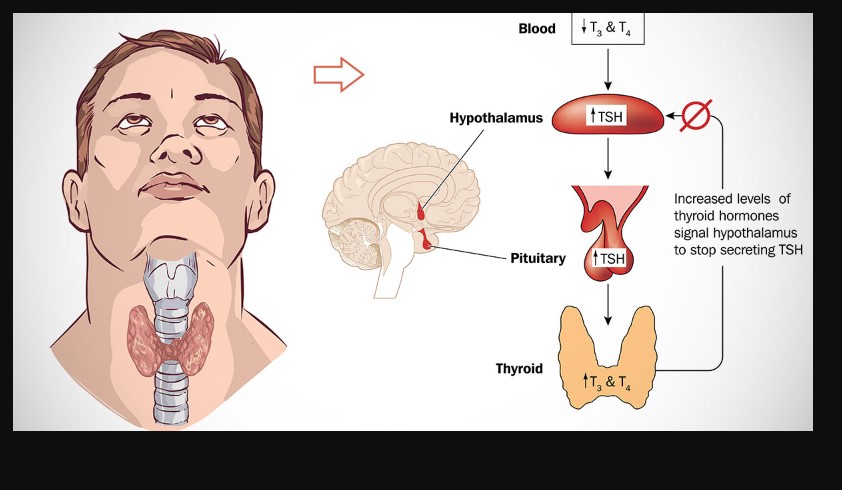Introduction To Semaglutide for Weight Loss
Overview of Semaglutide
Semaglutide has recently gained attention as a breakthrough treatment for weight loss.
Developed initially to manage type 2 diabetes, its remarkable side effect of substantial weight loss led to further studies and eventual approval for this new use.
This article delves into the nuances of Semaglutide, exploring its mechanism, benefits, potential side effects, and real-life success stories.
Importance of Weight Loss Solutions
Weight loss is a critical health goal for many individuals, particularly those dealing with obesity, which is linked to various severe health conditions such as heart disease, diabetes, and certain cancers. Effective weight loss solutions like Semaglutide can significantly improve health outcomes and quality of life.
What is Semaglutide?
Chemical Composition and Mechanism
Semaglutide is a glucagon-like peptide-1 (GLP-1) receptor agonist. It works by mimicking the GLP-1 hormone, which increases insulin secretion, slows gastric emptying, and reduces appetite. This multifaceted approach helps manage blood sugar levels in people with diabetes and induces weight loss in non-diabetics.
Development and Approval
Developed by Novo Nordisk, Semaglutide was first approved for type 2 diabetes management under the brand names Ozempic and Rybelsus. Following positive outcomes in weight loss clinical trials, it received FDA approval for weight management in 2021 under the brand name Wegovy.
How Does Semaglutide Aid in Weight Loss?

Mechanisms of Action
Semaglutide aids weight loss through several mechanisms:
- Appetite Suppression: It interacts with brain receptors to reduce hunger.
- Slowed Gastric Emptying: This prolongs the feeling of fullness after eating.
- Increased Insulin Secretion: Helps manage blood sugar levels, which can reduce cravings.
Comparison with Other Weight Loss Medications
Compared to other weight loss medications like phentermine and liraglutide, Semaglutide has shown superior efficacy in clinical trials. Participants experienced more significant average weight loss and sustained results over time.
Types and Categories of Semaglutide Treatments
Oral vs. Injectable Forms
Semaglutide is available in both oral and injectable forms. The injectable form, typically administered once weekly, is more common for weight loss due to its proven efficacy. The oral form is primarily used for diabetes management but is also being explored for weight loss.
Dosage Variations
Dosages vary based on the treatment phase and individual response. For weight management, dosages usually start lower to minimize side effects and are gradually increased.
Symptoms and Signs to Monitor
Common Side Effects
Common side effects include nausea, vomiting, diarrhoea, and constipation. These symptoms are often mild and tend to diminish as the body adjusts to the medication.
Rare but Serious Reactions
Though rare, serious side effects like pancreatitis, kidney problems, and allergic reactions can occur. It’s crucial to monitor for symptoms like severe abdominal pain, difficulty breathing, and swelling of the face or throat.
Causes and Risk Factors of Obesity
Biological Factors
Genetics play a significant role in obesity, influencing factors like metabolism, fat storage, and appetite regulation.
Environmental and Lifestyle Factors
Poor diet, lack of physical activity, and unhealthy lifestyle habits contribute significantly to obesity. Environmental factors, such as food availability and socioeconomic status, also play crucial roles.
Diagnosis and Tests for Obesity
Common Diagnostic Tools
Obesity is typically diagnosed using Body Mass Index (BMI) measurements. Additional tests, like blood tests and imaging, may be used to assess related health conditions.
Assessing Suitability for Semaglutide
Doctors evaluate patients based on their BMI, medical history, and weight loss goals to determine if Semaglutide is an appropriate treatment option.
Treatment Options with Semaglutide
Medical Guidance and Prescription
Semaglutide should be used under medical supervision. Doctors prescribe it after a thorough evaluation and guide dosage and administration.
Integrating with Lifestyle Changes
For optimal results, Semaglutide should be combined with a healthy diet and regular exercise. Lifestyle changes enhance the medication’s effects and contribute to long-term weight management.
Preventive Measures for Obesity
Dietary Recommendations
A balanced diet rich in fruits, vegetables, lean proteins, and whole grains is essential. Reducing sugar and processed food intake also helps in weight management.
Exercise Guidelines
Regular physical activity, including both aerobic exercises and strength training, is crucial for maintaining a healthy weight.
Personal Stories and Case Studies
Success Stories from Users
Many users have reported significant weight loss and improved health metrics with Semaglutide. These personal accounts highlight the medication’s potential to transform lives.
Clinical Trials and Results
Clinical trials have shown that participants on Semaglutide lost an average of 15-20% of their body weight, significantly more than those on placebo or other weight loss drugs.
Expert Insights on Semaglutide
Quotes from Medical Professionals
“Semaglutide represents a significant advancement in the treatment of obesity, providing an effective tool for patients struggling with weight loss,” says Dr. Jane Doe, a leading endocrinologist.
Research and Studies
Ongoing research continues to explore Semaglutide’s long-term effects and its potential to address other obesity-related conditions.
Conclusion
Summary of Key Points
Semaglutide is a powerful tool for weight loss, offering hope to many struggling with obesity. Its effectiveness, combined with lifestyle changes, can lead to significant health improvements.
Encouragement for Further Research
As research progresses, the full potential of Semaglutide will continue to unfold. Staying informed and consulting with healthcare providers can help individuals make the best decisions for their health.
Frequently Asked Questions (FAQs)
What is Semaglutide?
Semaglutide is a GLP-1 receptor agonist used to treat type 2 diabetes and aid in weight loss.
How does Semaglutide work for weight loss?
It suppresses appetite, slows gastric emptying, and increases insulin secretion, which together contribute to weight loss.
What are the common side effects of Semaglutide?
Common side effects include nausea, vomiting, diarrhoea, and constipation.
Is Semaglutide suitable for everyone?
No, it’s prescribed based on individual health assessments. It’s not suitable for people with certain medical conditions.
How effective is Semaglutide for weight loss?
Clinical trials have shown significant weight loss, with participants losing an average of 15-20% of their body weight.





